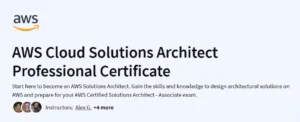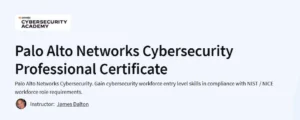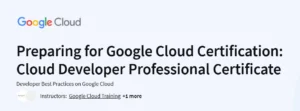What will you learn in Python 101: Interactively learn how to program with Python 3 Course
Understand programming fundamentals using Python syntax.
Write clean, readable, and structured Python code.
Use data types, loops, conditionals, and functions effectively.
Handle files, exceptions, and user input gracefully.
Apply object-oriented programming concepts in Python.
Program Overview
Module 1: Getting Started with Python
⏳ 2 hours
Topics: Installing Python, running your first script, understanding print statements and comments.
Hands-on: Run scripts, write basic programs, and explore syntax in the interactive environment.
Module 2: Variables and Data Types
⏳ 2.5 hours
Topics: Strings, integers, floats, booleans, and type conversion.
Hands-on: Practice declaring variables, manipulating strings, and performing arithmetic.
Module 3: Conditionals and Loops
⏳ 3 hours
Topics: If-else statements, for and while loops, break and continue.
Hands-on: Build interactive programs with control flow and logic.
Module 4: Functions and Scope
⏳ 3 hours
Topics: Defining functions, return values, parameters, and scope.
Hands-on: Write modular and reusable code with functions.
Module 5: Lists and Dictionaries
⏳ 3 hours
Topics: Lists, dictionaries, slicing, list comprehensions, dictionary methods.
Hands-on: Manipulate data structures and use them in small projects.
Module 6: File I/O and Exceptions
⏳ 2.5 hours
Topics: Reading from and writing to files, exception handling.
Hands-on: Create programs that save and retrieve data from files.
Module 7: Object-Oriented Programming
⏳ 3.5 hours
Topics: Classes, objects, methods, inheritance, encapsulation.
Hands-on: Build basic Python classes and create object-oriented solutions.
Module 8: Final Practice Projects
⏳ 3.5 hours
Topics: Combine all learned concepts to solve real-world problems.
Hands-on: Code multiple mini-projects like a text analyzer or quiz app.
Get certificate
Job Outlook
Python is among the most in-demand programming languages in tech, finance, education, and startups.
Entry-level Python developers can earn between $60K–$90K, with career paths into data science, web development, automation, and AI.
Python knowledge unlocks freelance and remote opportunities across industries.
Specification: Python 101: Interactively learn how to program with Python 3 Course
|
FAQs
- No prior experience is required; the course is designed for absolute beginners.
- Interactive coding environment allows hands-on learning without setup.
- Gradually introduces programming fundamentals like variables, loops, and functions.
- Builds confidence with immediate feedback on exercises.
- Ideal for learners starting from scratch in Python.
- Yes, course includes mini-projects like text analyzers, quizzes, and small utilities.
- Hands-on exercises combine variables, loops, functions, and file I/O.
- Prepares learners to write modular and reusable Python code.
- Projects focus on problem-solving rather than just syntax.
- Provides a foundation for advanced Python courses or web/data projects.
- Tech startups, finance, education, and automation industries.
- Roles: Entry-level Python Developer, Junior Data Analyst, Automation Engineer.
- Provides foundational skills for careers in AI, web development, or scripting.
- Enables freelance or remote Python programming opportunities.
- Salaries range $60K–$90K for beginners depending on industry and location.
- Fully interactive, text-and-code-based learning platform with instant feedback.
- Gradual progression from fundamentals to object-oriented programming.
- Focuses on hands-on problem-solving and real mini-projects.
- No video content, ensuring a code-first, practice-oriented approach.
- Limited advanced topics; best suited for beginners before moving to libraries or frameworks.
- Yes, strong foundation in variables, loops, functions, data structures, file I/O, and OOP.
- Mini-projects reinforce problem-solving and logical thinking.
- Prepares learners to transition to data science, web development, or automation.
- Builds familiarity with Python syntax and coding best practices.
- Supports self-paced, independent learning and experimentation.





